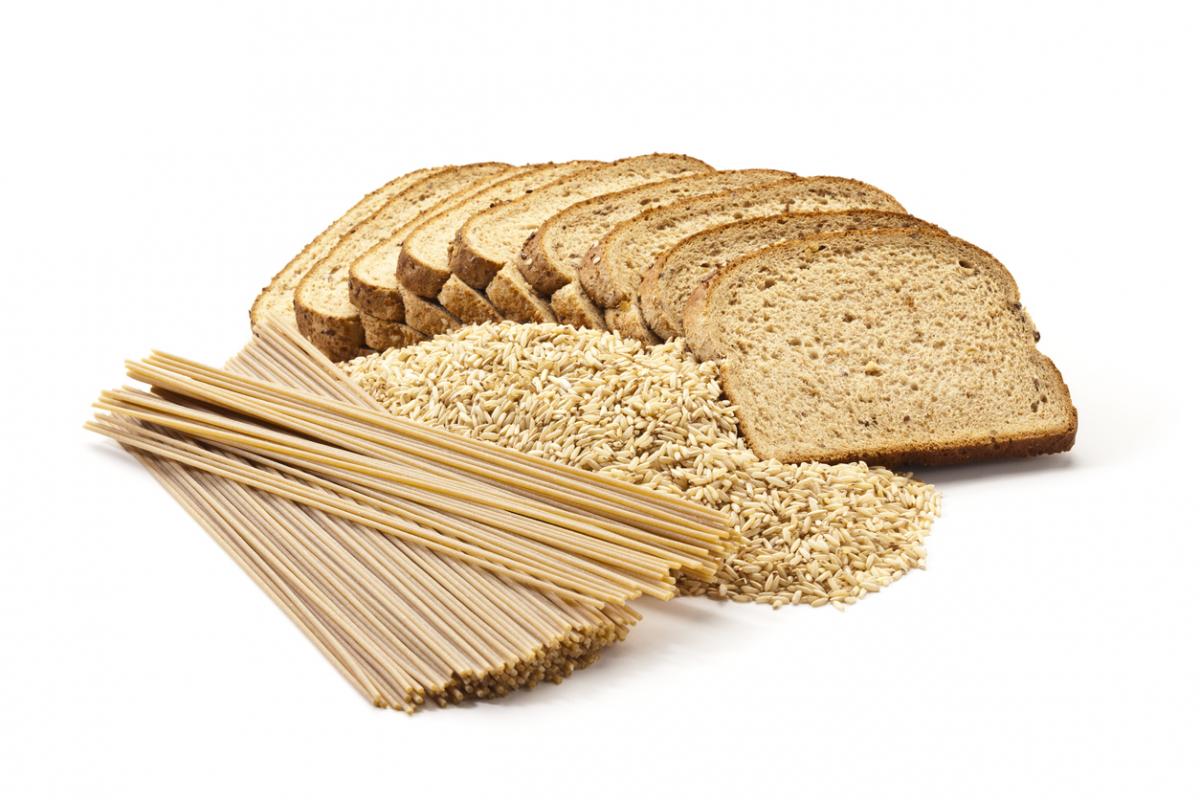Your Location:Home - Hot Topics > - Content
News and Information
Sound Science: Two More Reasons to Eat Wholesome Whole Grains
Time:2017-04-01 14:46:30
Source:IFIC

We’re rounding out National Nutrition Month, with a new Sound Science analysis. In fact, this Sound Science piece includes a double feature. Recently published in the American Journal of Clinical Nutrition, a pair of studies focused on a variety of health benefits associated with whole grain consumption, specific to the body weight and microbiome. Whether you are a carb enthusiast, carb skeptic, or somewhere in the middle, it’s important to take note new scientific findings and see how they align, enhance, or refute the current body of evidence. This will help you get the whole (grain) story.
A Closer Look at the Science
First up, the study by Karl et al., examined the effects of whole and refined grains on energy and metabolism endpoints. The study enrolled 81 participants in an eight-week study. The participants were divided into two groups: a whole grain group and refined grain group. The diets differed only in the types of carbohydrates consumed. Interestingly, the study found that the whole grain group had a calorie deficit (burned off more than they took in) more each day due to a few different factors, including an increased resting metabolic rate. Moreover, the authors postulated that this calorie loss could “translate into a ~2.5-kg (5.5 lbs.) body weight loss over one year."
The other complementary study by Vanegas, et al., analyzed different endpoints and samples from the Karl et al., study to investigate the impact of whole grains on the microbiome. The microbiome is a complex community of microorganisms such as bacteria, fungi, and viruses found on and in our bodies. While we are only at the early stages of understanding the impact of the microbiome, current research indicates that these communities provide us with important health functions.
One of the largest microbial communities resides in our gastrointestinal (GI) tracts. Data from Vanegas et al., demonstrate that short-term whole grain consumption altered the GI microbiome composition and modified specific immune system and inflammatory markers. However, the researchers acknowledged that these effects were “modest” and that additional follow-up studies are “needed to observe more dramatic effects on immune and inflammatory responses.”
The other complementary study by Vanegas, et al., analyzed different endpoints and samples from the Karl et al., study to investigate the impact of whole grains on the microbiome. The microbiome is a complex community of microorganisms such as bacteria, fungi, and viruses found on and in our bodies. While we are only at the early stages of understanding the impact of the microbiome, current research indicates that these communities provide us with important health functions.
One of the largest microbial communities resides in our gastrointestinal (GI) tracts. Data from Vanegas et al., demonstrate that short-term whole grain consumption altered the GI microbiome composition and modified specific immune system and inflammatory markers. However, the researchers acknowledged that these effects were “modest” and that additional follow-up studies are “needed to observe more dramatic effects on immune and inflammatory responses.”
How does this impact what we already know?
So how do these findings stack up with the body of evidence? These findings feed in nicely to the current recommendations regarding carbohydrates and whole grains, which is to make half of your grain intake whole grains. In fact, comprehensive evidence from the Nutrition Evidence Library indicates that there is moderate evidence linking whole grain intake and lower body weight. If you are looking to boost your whole grain intake and meet the daily recommended 48 grams, try to incorporate more whole wheat flour, oats, cornmeal, popcorn, brown rice, bulgur, barley, rye, and quinoa into your diet.
However, this does not mean that there isn’t a place for other grains, such as enriched refined grains. Enriched refined grains contribute a variety of essential micronutrients such as B vitamins, thiamin, riboflavin, niacin, and folic acid, as well as iron. These micronutrients are key for supporting your overall metabolism and some specific micronutrients, such as folic acid, decrease the risk of neural tube development during pregnancy.
While these two studies on whole grains reveal a compelling reason to make half your grains whole, don’t forget about their other half. Both whole and enriched refined grains contribute important nutrients and are key components of a healthy eating pattern.
However, this does not mean that there isn’t a place for other grains, such as enriched refined grains. Enriched refined grains contribute a variety of essential micronutrients such as B vitamins, thiamin, riboflavin, niacin, and folic acid, as well as iron. These micronutrients are key for supporting your overall metabolism and some specific micronutrients, such as folic acid, decrease the risk of neural tube development during pregnancy.
While these two studies on whole grains reveal a compelling reason to make half your grains whole, don’t forget about their other half. Both whole and enriched refined grains contribute important nutrients and are key components of a healthy eating pattern.



